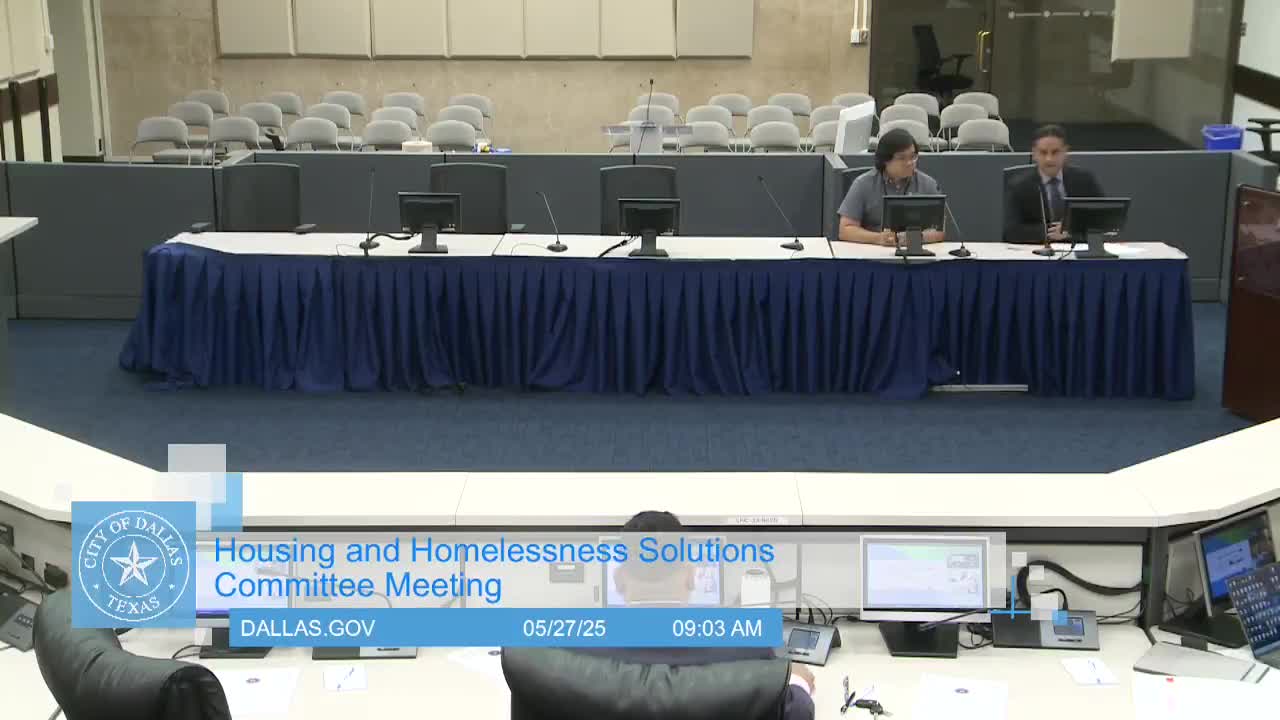Article not found
This article is no longer available. But don't worry—we've gathered other articles that discuss the same topic.
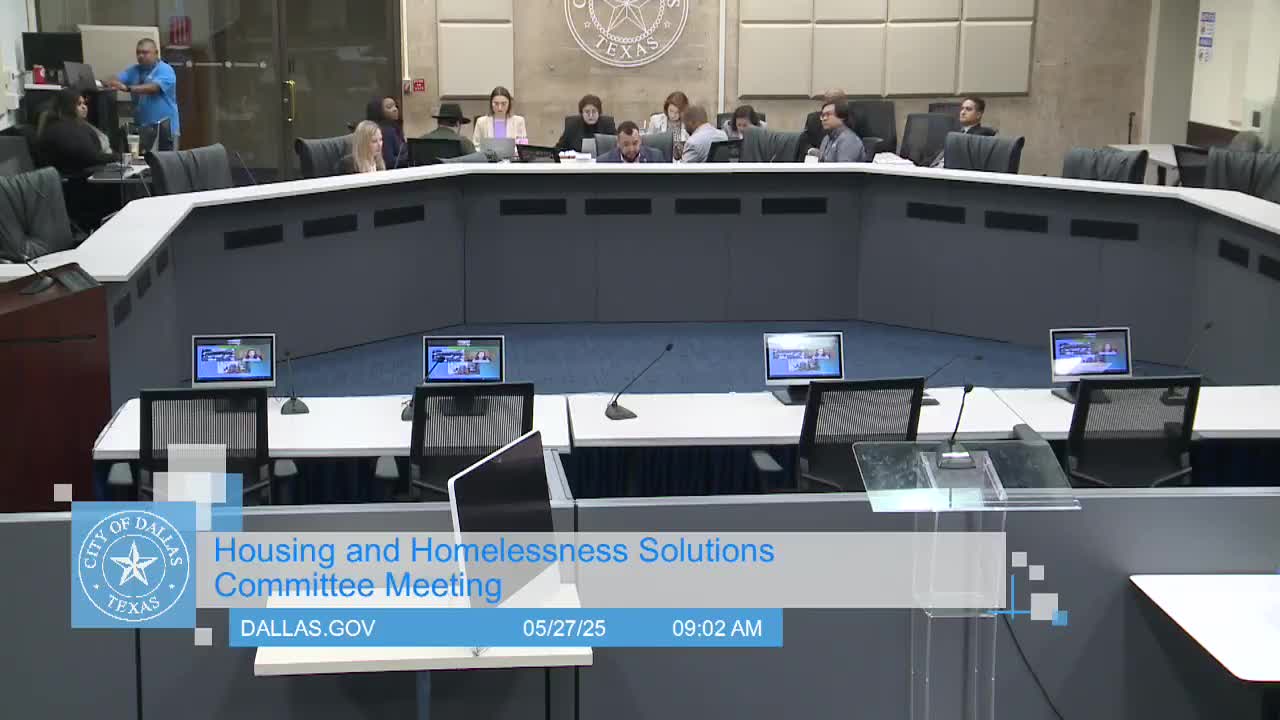
Committee approves minutes at start of May 27 meeting
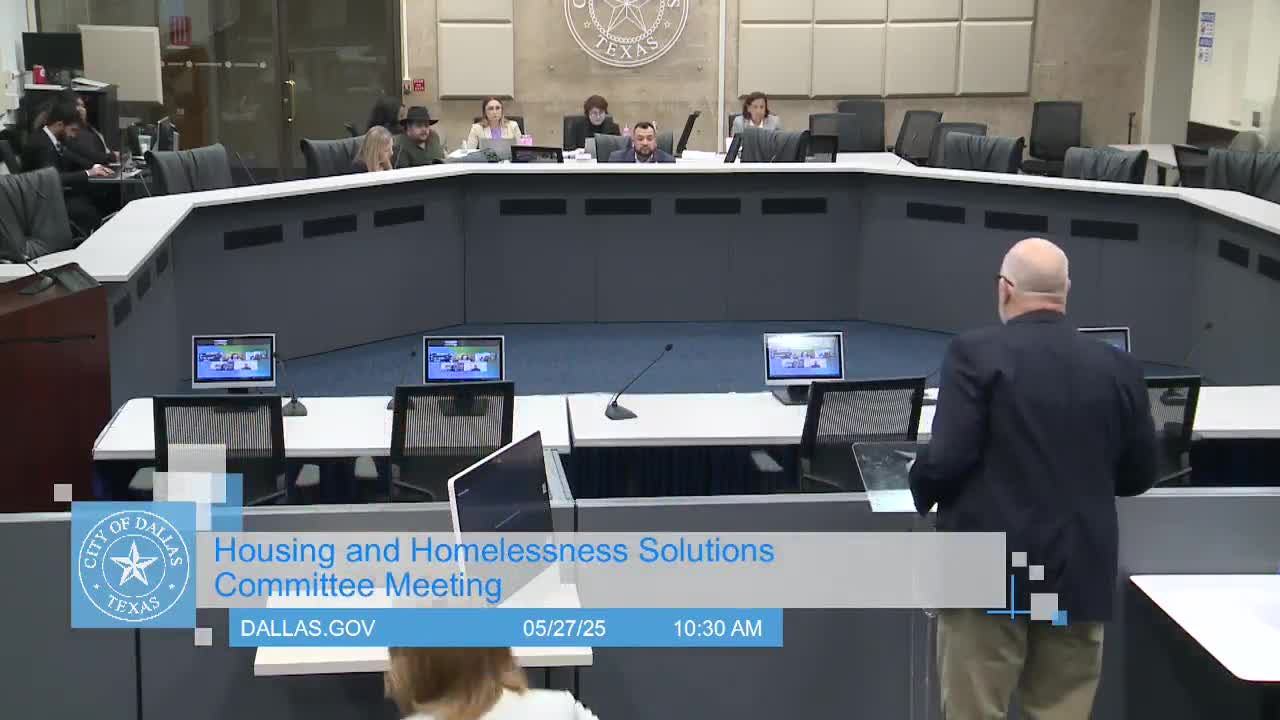
Committee presses Office of Homeless Solutions on HMIS access and "Give Responsibly" impact
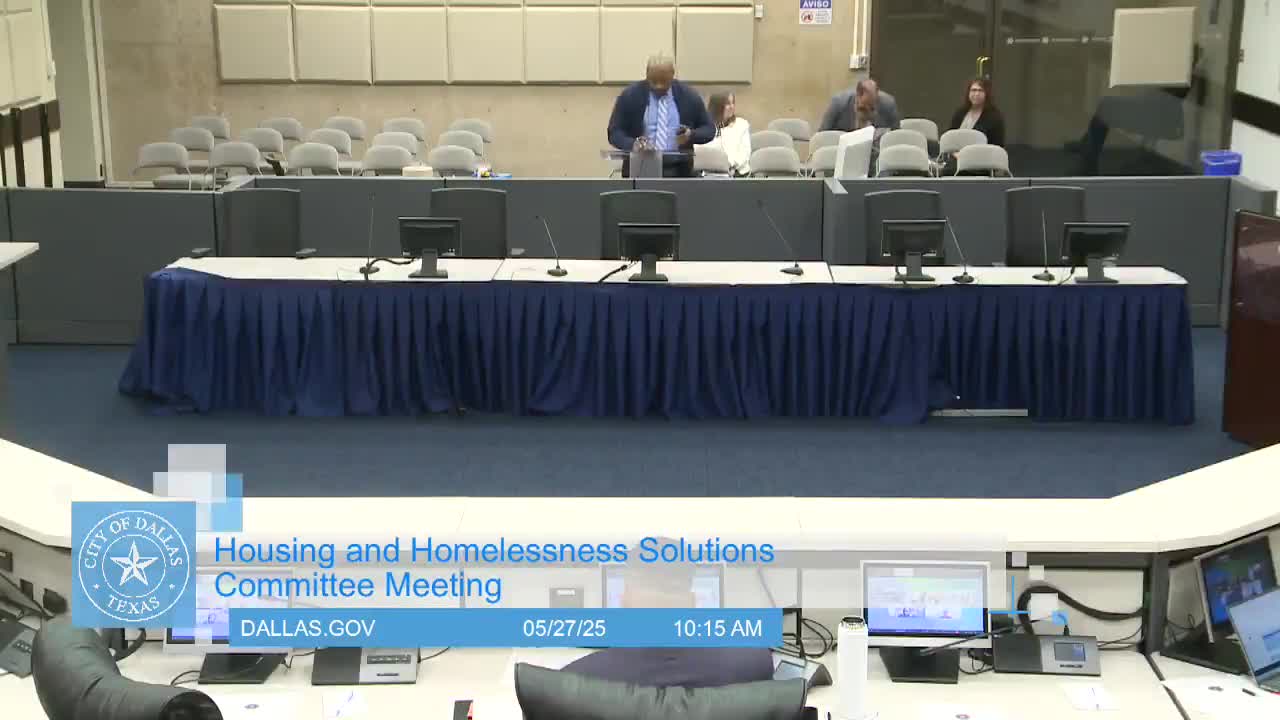
Voucher shortfall places 1950 Fort Worth Avenue rehabilitation at risk, staff say
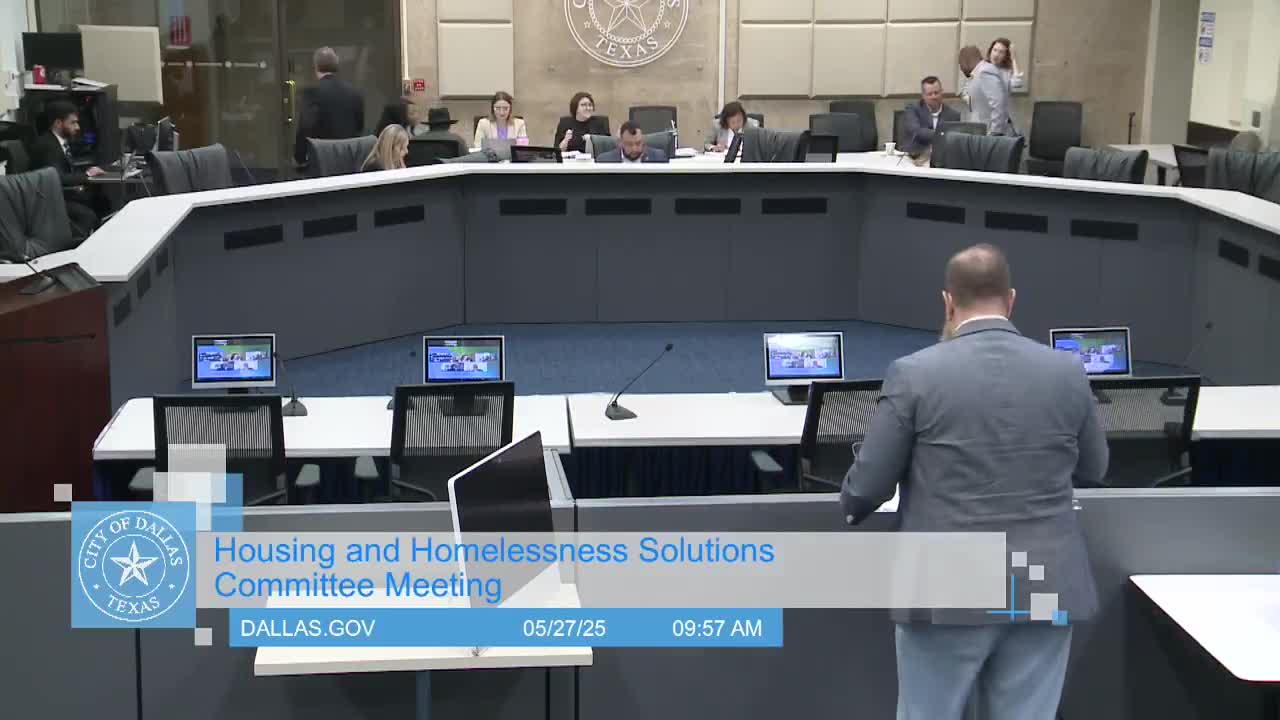
Housing department update: home repair backlog, $10M carryover and open vendor procurement
